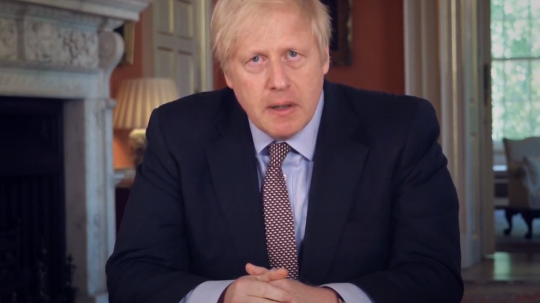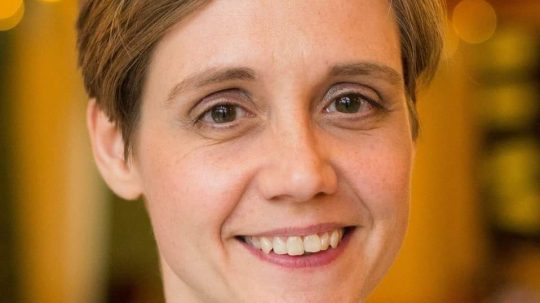Health officials have introduced new restrictions in Oldham amid a surge in coronavirus cases, less than two weeks after prime minister Boris Johnson set out plans for a “significant return to normality” by Christmas.
Oldham Council issued new guidance on Tuesday, set to last a fortnight, which aims to halt the spread of the virus and avoid a local lockdown, as seen in Leicester.
The borough’s more than 233,000 residents are being asked not to have social visitors to their home and to keep two metres apart from friends and family not from their household when seeing them outside.
Care homes will not relax restrictions on visiting, which were recently lifted, and those people who are shielding will be asked to shield for another two weeks from Friday 31 July.
Oldham has recorded 119 cases in the seven days to July 25, compared with 26 in the week ending 17 July.
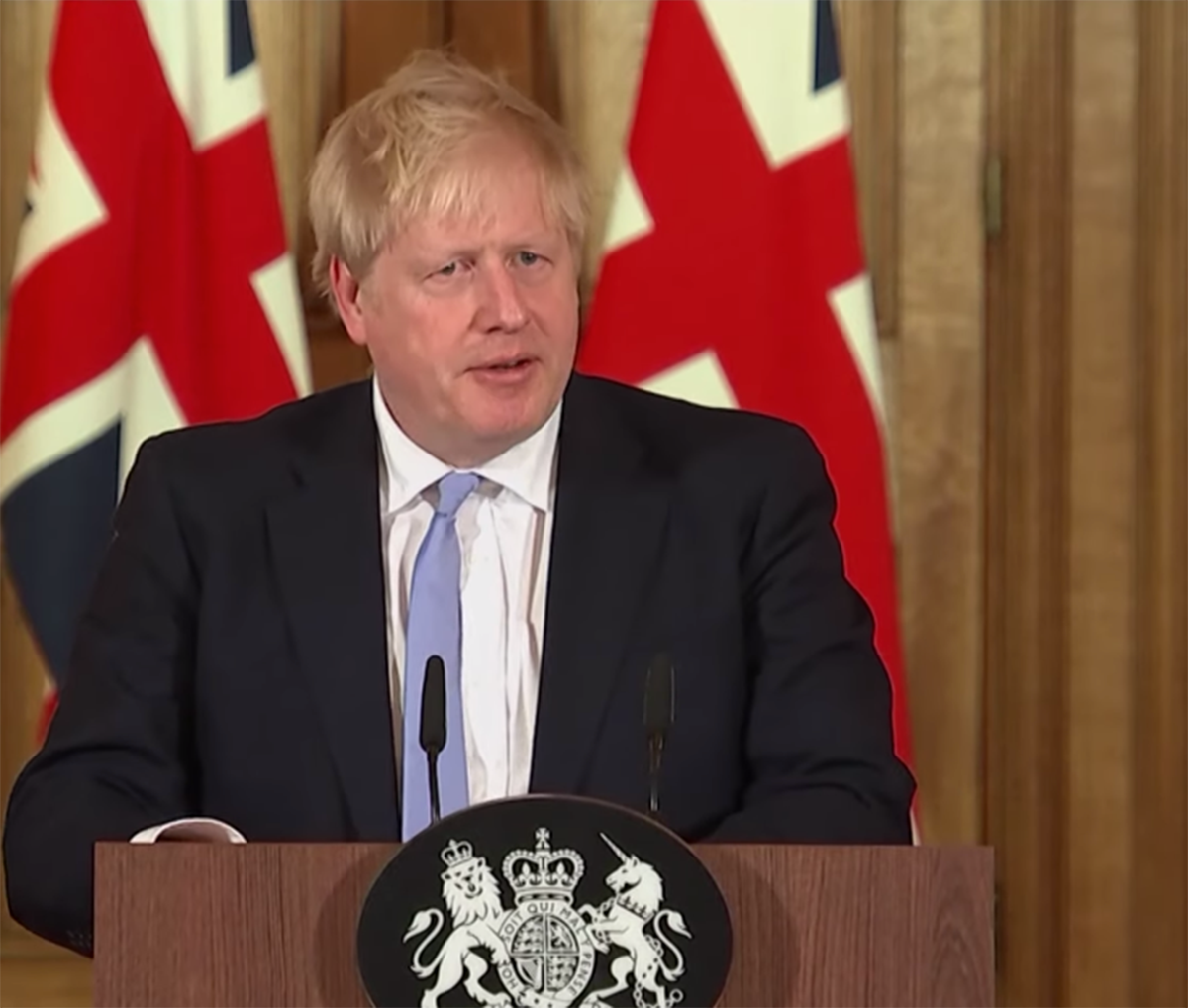
Credit: YouTube/The Guardian.
The tightening of restrictions in Oldham comes after the PM announced on 17 July the further easing of lockdown elsewhere in England.
These new measures include updating government advice on going to work on 1 August, giving employers more discretion to bring staff back to workplaces if safe to do so.
Devolved governments in Scotland, Wales and Northern Ireland have the power to set their own timings for easing lockdown restrictions.
Meanwhile, holidaymakers returning to Britain from Spain are facing having to quarantine themselves for two weeks after the country was removed from the “travel corridor” list amid a surge in coronavirus cases.
Spain was originally included in a list of more than 70 countries exempt from the UK’s 14-day Covid-19 quarantine rules released earlier this month.
The easing of the lockdown comes amid warnings that moving too quickly could result in a resurgence of the virus. Unions and politicians, among others, continue to express concern as to what protections are in place to prevent workers contracting Covid-19 and triggering a “second wave” of the virus.
Since March, EachOther has put together a timeline of the nation’s journey from liberty to lockdown since the coronavirus outbreak. Here we trace England’s uneven path to easing lockdown.
7 May 2020
The first major trial of the NHS’ Covid-19 contact-tracing app gets underway in the Isle of Wight. The app had previously been hailed as key to lifting the coronavirus lockdown by the Times. But questions remain around its efficacy and the lawfulness of its interference in our right to privacy.
Contact tracing is a well-established method of outbreak control. When done by humans, it involves an infected person telling an interviewer where they have been and who they have been in contact with. Public health officials can then ask those who potentially have the virus to get tested or self-isolate. It is vital with Covid-19, as it is a highly contagious virus.
The majority of newspaper headlines focus on the possibility of lockdown measures being eased from Monday 11 May.
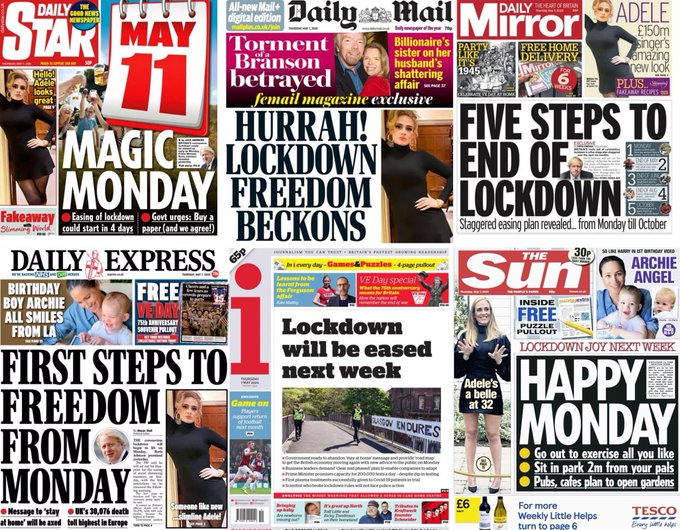
The government and papers are accused of confused messaging and encouraging the public to breach the official advice to stay home and stop the spread of the virus.
Foreign secretary Dominic Raab later clarifies that any changes to the coronavirus lockdown will be “modest” at the daily Downing Street briefing on the coronavirus crisis.
10 May
PM Boris Johnson sets out a three-step “conditional” plan to begin easing lockdown restrictions.
In step one, Johnson says that those who cannot work from home, such as construction workers, “should be actively encouraged to go to work” from Monday.
He recommends that workers commute by car, foot or bike but added that public transport operators will be following “Covid-secure” standards and that guidance is being drafted for employers to make workplaces Covid-secure.
He also encourages the public to take “more and even unlimited amounts of outdoor exercise” from Wednesday, while continuing to maintain physical distancing. Fines will be increased for those who flout physical distancing rules, he adds.
In step two, the government hopes that by 1 June it may be able to begin the phased reopening of shops as well as partially reopening primary schools – starting with reception, Year 1 and Year 6.
In step three, Johnson hopes that “at least some of the hospitality industry and other public places,” will be able to reopen by July at the earliest.
He stresses that these steps would be conditional on the public’s continued adherence to social distancing guidance and the prevention of any future resurgence of the outbreak.
Johnson also confirms that quarantine measures will be imposed on anyone coming into the country by air.
Trade unions respond by telling the PM that there should be no return to work until workers feel safe.
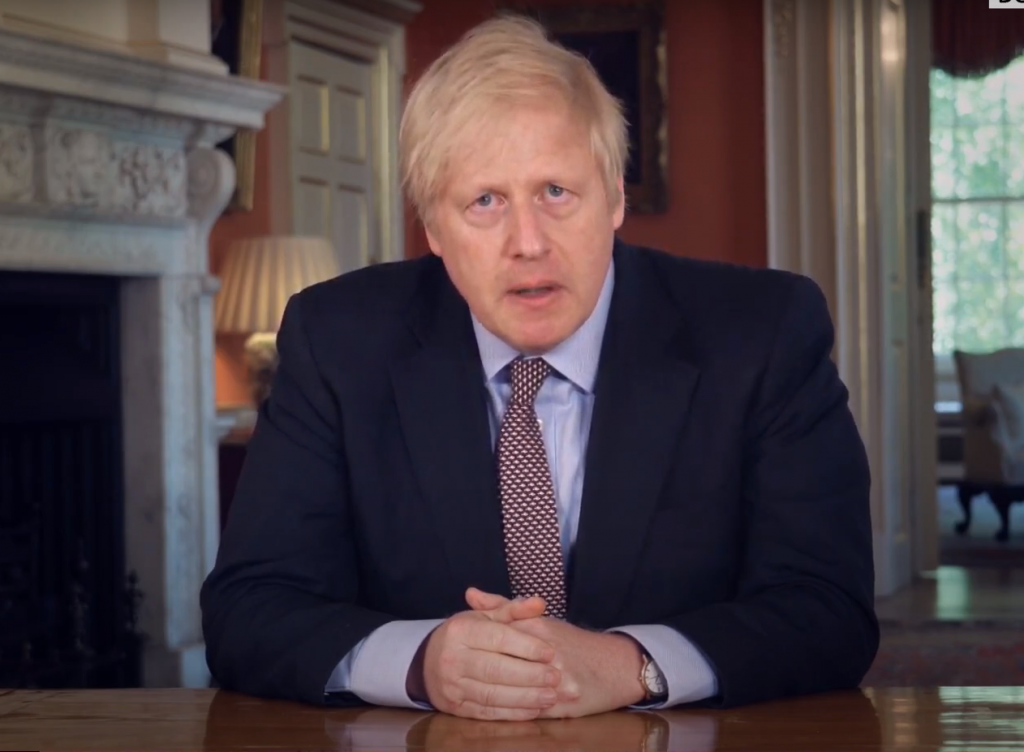
Boris Johnson delivers an address to the nation on the coronavirus lockdown restrictions
11 May
The Police Federation for England and Wales warns that the police need clearer guidance on how to enforce the lockdown measures to prevent their job from becoming impossible.
The legal basis for the police’s powers to enforce England’s lockdown is Health Protection Regulations, which came into effect on 26 March. Officers have been accused of overzealous and inconsistent use of these powers.
John Apter, chairman of the Federation, stated that police work “must be based on crystal clear guidance, not loose rules that are left open to interpretation – because that will be grossly unfair on officers whose job is already challenging”.
Teaching unions describe the government’s plans to reopen schools to some pupils on 1 June as “reckless” amid concerns teachers and children may catch and spread the virus.
Article 1 of Protocol 2 to the ECHR protects children from being denied education, but this right is not absolute and can be interfered with to protect the health of children and teachers.
Where this occurs, the state has an obligation to balance the importance of educating children with the need to protect pupils and teachers from infectious diseases.
13 May
An amended version of the law governing the lockdown restrictions in England comes into effect.
The relevant law, known as the Health Protection Regulations, was introduced in March and made it illegal to:
- Leave or be outside the place where you live “without reasonable excuse”
- Be in a public gathering of more than two people
This does not change. But what does change is the list of exemptions and the amount people in England can be fined if they are found in breach – which increases from £60 to £100.
To confuse matters somewhat, England, Wales, Scotland and Northern Ireland each have their own version of these health regulations. They initially shared broad similarities but are now growing increasingly different.
The amended law allows for the re-opening of garden centres, sports courts and recycling centres in England.
In addition to outdoor exercise, open-air recreation is also permitted with no more than one member of another household.
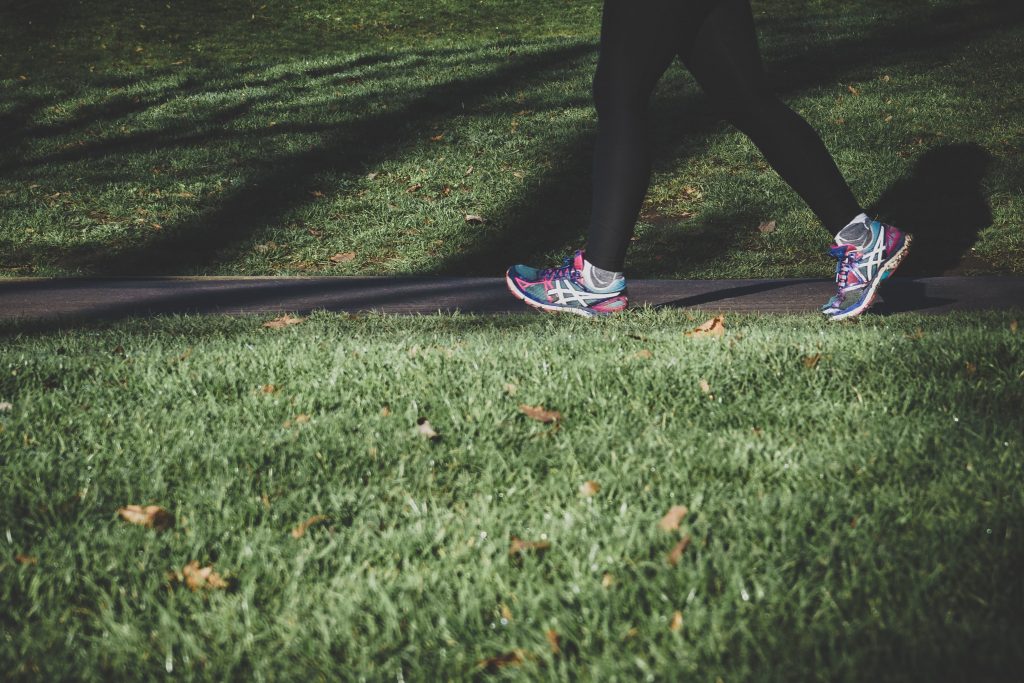
People were given more freedom to exercise in May. Credit: Unsplash
15 May
The Crown Prosecution Service (CPS) publishes the findings of a review into all charges brought under the Coronavirus Act and Health Protection Regulations.
It is revealed that 56 of the 231 police charges brought under these two pieces of coronavirus legislation were incorrect.
CPS Director of Legal Services, Gregor McGill, says: “Where mistakes were made, it was usually because Welsh regulations were used in England, or vice versa.”
He added: “Under the [Coronavirus] Act, all 44 charges were incorrect because they did not cover potentially infectious people, which is what the legislation is intended for.”
The Coronavirus Act, passed on 25 March, has granted the government “unprecedented” powers. This includes enabling the police, immigration officers and health officials powers to detain “potentially infectious” persons.
16 May
Small crowds of protesters gather in London and other parts of the UK in opposition to the lockdown. They appear to subscribe to a discredited conspiracy theory which links Covid-19 to the 5G phone network.
18 May
Health secretary Matt Hancock confirms that 21,000 contact tracers have been recruited.
Meanwhile, jury trials resume in a limited number of courts, having been suspended since 23 March.
21 May
Aviation businessman Simon Dolan launches a legal challenge against the government over the lockdown. He argues the coronavirus regulations were not made lawfully and are a disproportionate interference with the right to liberty, among other rights.
25 May
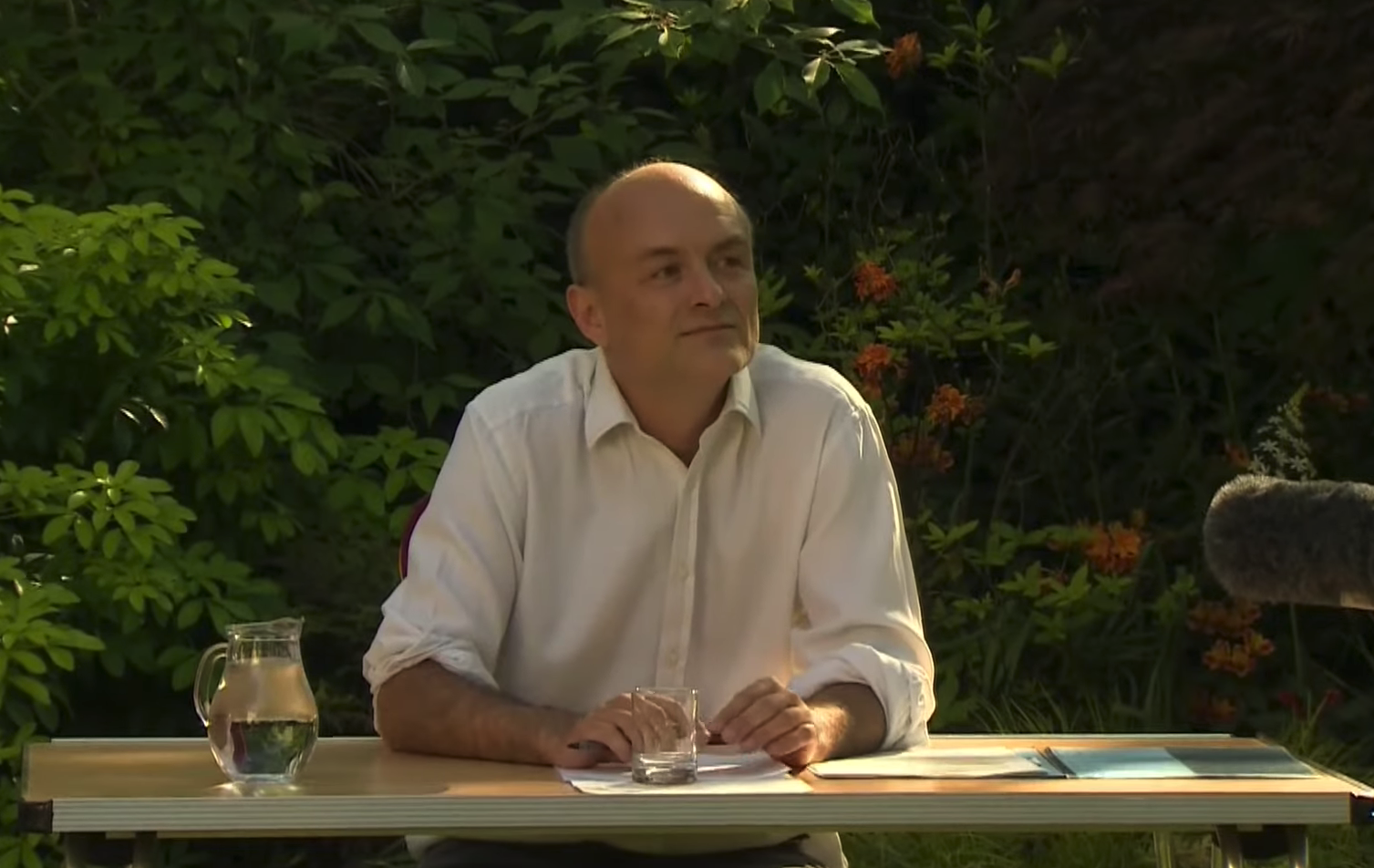
Dominic Cummings answers questions from the press about his lockdown trip to Durham in the Downing Street Rose Garden. Credit: ITV News / YouTube
The PM’s chief advisor, Dominic Cummings, holds a press conference amid mounting pressure to resign after it is revealed he travelled 260 miles from London to Durham to self-isolate with his wife and child at the height of lockdown.
The PM and other cabinet ministers, including health secretary Matt Hancock and attorney general Suella Braverman, had expressed support for Cummings’ actions.
28 May
Contact tracing systems go live in England and Scotland. However, Baroness Dido Harding, in charge of the test and trace programme, told MPs the system in England will not be “fully operational at a local level” until the end of June.
Johnson announces that the government’s five tests for easing restrictions in England have been met, and from 1 June groups of up to six people will be able to meet outdoors in gardens and outdoor private spaces.
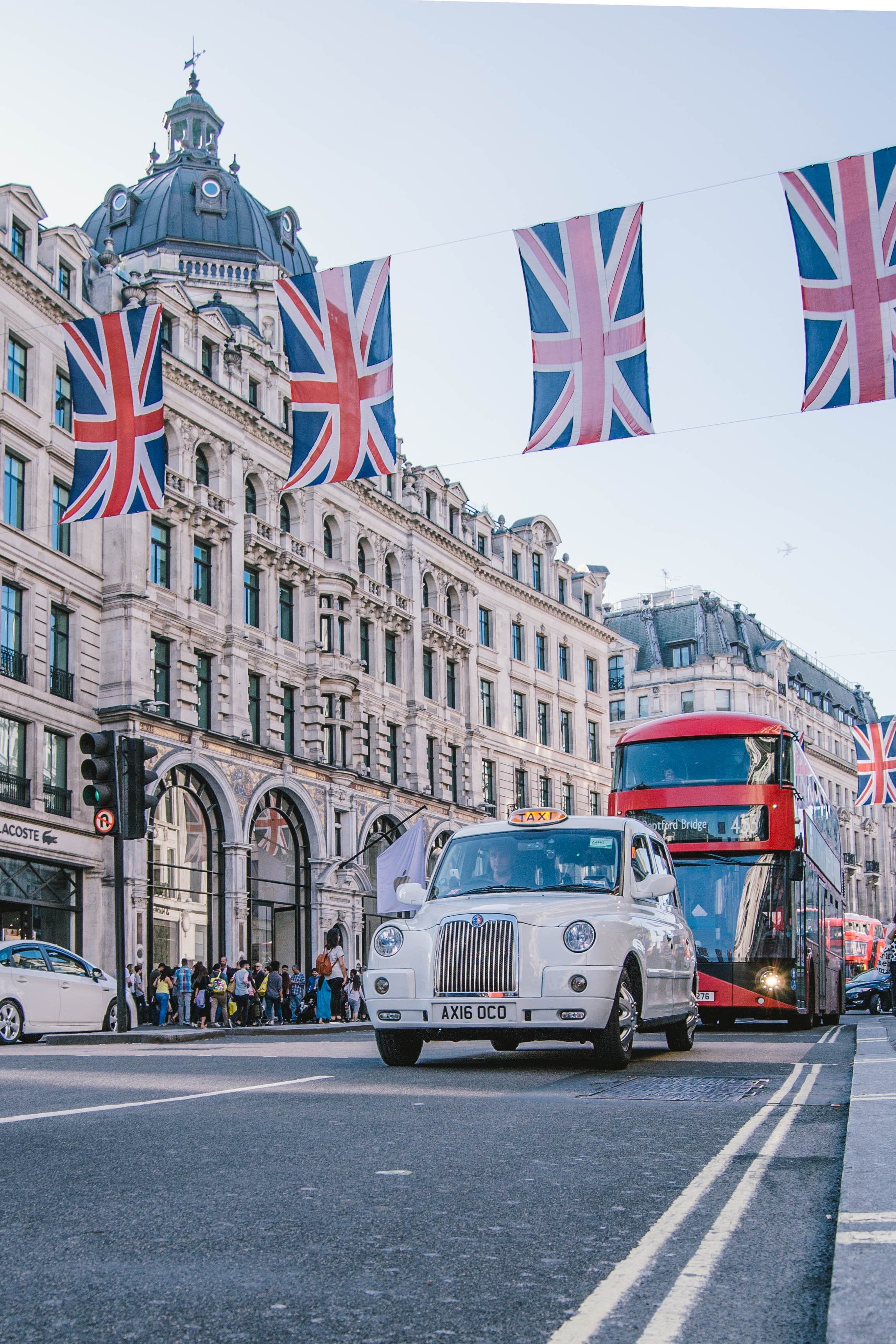
From 1 June groups of up to six people were able to meet outdoors in gardens and outdoor private spaces. Credit: Unsplash.
31 May
Liberty, StopWatch and 17 other organisations, urge the government to address the “unfair policing” of lockdown. It comes after Liberty and the Guardian revealed that black, Asian and minority ethnicity people are 56% more likely to be issued fines under lockdown laws than white people.
Rosalind Comyn, Policy and Campaigns Officer at Liberty, said: “Such broad police powers and vague government guidance were bound to create a recipe for arbitrary policing and injustice. It’s only now becoming clear how uneven that enforcement has been.”
1 June
The latest version of The Health Protection Regulations come into effect. Car and caravan showrooms, outdoor sports amenities and outdoor non-food markets can reopen. The prohibitions on leaving home are replaced by a prohibition on staying overnight away from home, with certain specific exceptions.
Gatherings of people from more than one household are limited to six people outdoors and are prohibited entirely indoors, with exceptions including education.
Primary pupils in England in Reception, Year 1 and Year 6 begin to return to school.
2 June
Public Health England releases its report into the disproportionately high number of people from ethnic minorities dying from Covid-19.
The report finds that age, sex, health, geographical circumstances and ethnicity are all risk factors, with those of Bangladeshi origin experiencing a particularly high number of fatalities.
4 June
Open Rights Group, a digital rights group, files a complaint with the Information Commissioner’s Office alleging that the contact tracing programme does not comply with data protections, risking violations of peoples’ right to privacy.

The track and trace app was alleged to breach people’s privacy rights. Credit: Unsplash
5 June
Anti-racism demonstrations are held in cities across the UK following the killing of George Floyd by police in the USA. Attendees are reported to be in the thousands.
Amid these protests, health secretary Matt Hancock warns against breaching lockdown rules. At the daily press briefing he said that he “understands why people are upset” but advises people not to attend large gatherings, including demonstrations, of more than six people.
Whether the regulations that effectively ban mass protests comply with human rights has been debated at length by lawyers. Protests are protected by freedom of association and freedom of expression, but both can be interfered with to protect health where necessary and in a proportionate manner.
8 June
New laws requiring travellers arriving into the UK to quarantine for 14 days come into force. Those who break the quarantine conditions in England face a fine of £1,000 and potential prosecution.
9 June
The government drops plans for all primary school children to return to school before the end of the summer term, instead prioritising “flexibility” for schools over whether or not to admit more pupils.
Thirty medical organisations that represent black, Asian and minority ethnic (BAME) doctors and nurses write to Health Secretary Matt Hancock and Equalities Minister Kemi Badenoch expressing their concern at the unequal and discriminatory impact of the pandemic.
This followed the government review that found black, Asian and ethnic minority people are twice as likely to die from Covid-19.
12 June
A report from Independent SAGE, an independent group of scientists providing advice on the Covid-crisis, states that the government’s test, track and trace system is “not fit for purpose”.
The panel, led by former government chief scientific advisor David King, criticised the decision to develop a centralised contact-tracing model on the basis that it risks losing the public’s trust due to concerns over “confidentiality and security of the data”.
13 June
Parts of the fourth version of the Health Protection Regulations come into effect. In England, adults who live alone or have dependant children may become linked with one other household of any size to form, as the government labels it, a “support bubble”.
The amendment also allows people to be accompanied to medical appointments and births, and permits some visits to people in hospital, hospices and care homes.
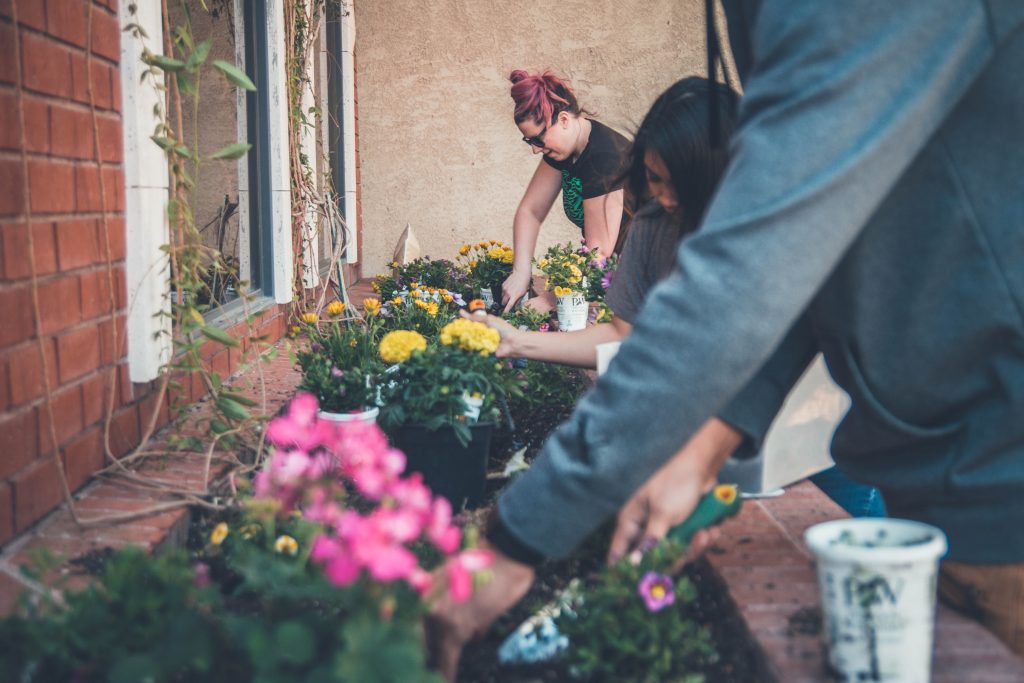
People were permitted to visit ‘support bubble’ households in June. Credit: Unsplash
15 June
The rest of the fourth version of the Health Protection Regulations comes into effect, allowing the re-opening of some retail shops and public-facing businesses. Places of worship may again be used for private prayer but not for communal worship.
The Health Protection (Coronavirus, Wearing of Face Coverings on Public Transport) (England) Regulations 2020 comes into effect, requiring most travellers on public transport in England to wear a face covering.
A CPS review of completed prosecutions under coronavirus laws finds improvements in the policing of the lockdown. In May, the legislation was correctly applied in almost 85% of cases, up from 75% in the last CPS review a month earlier.
16 June
Lord Chief Justice Lord Burnett of Maldon proposes jury-less trials to tackle the trial backlog aggravated by court closures during the lockdown. The proposal was subsequently criticised by criminal barristers and the Criminal Bar Association.
Whilst there is no right to a jury trial under Article 6 of the ECHR, depriving defendants of a jury trial, once that system is chosen, must be compatible with ECHR principles.
Some criminal lawyers are concerned that using judge-only trials for the purpose of moving quickly through a backlog of cases is unfair on defendants.
17 June
Premier league football returns as Sheffield United play Aston Villa behind closed doors.
18 June
Health secretary Matt Hancock delays the launch of the contact tracing app, and changes its original, centralised format in favour of a different model based on technology designed by Apple and Google.
19 June
The Covid-19 Alert Level is lowered from Level Four (severe risk, high transmission) to Level Three (substantial risk, general circulation), following the agreement of all four Chief Medical Officers.
The alert level is run by the Joint Biosecurity Centre and determined primarily by R – the rate at which the virus is reproducing – and the number of infections in the UK.
The scale ranges from the least severe Level One, indicating the disease is no longer present in the UK, through to Level Five – requiring the toughest and strictest measures. Level Three states that the virus is in general circulation but without high or exponentially rising levels of transmission.
Hancock describes the change as “a big moment for the country”.
23 June
Boris Johnson announces that the lockdown in England will be relaxed from 4 July. Businesses such as pubs, restaurants, hotels and hairdressers will be allowed to re-open.
Social distancing rules will remain in force, but reduced from two metres to “one metre plus”.
The government’s chief medical adviser, Prof Chris Whitty, said the relaxation represented a “reasonable balance of risk”.
25 June
It is revealed that the NHS test and trace system was unable to trace almost 30% of infected people between June 11th and June 17th.
29 June
Hancock announces a local lockdown in Leicester – the first of its kind in a British county – amid a surge in coronavirus cases in the area.
All non-essential shops in Leicester must close from Tuesday, while schools will close on Thursday, except to children of key workers.
The government’s plan to relax its shielding guidance for “clinically extremely vulnerable” people from 6 July will also not apply to Leicester.
The measures are to be reviewed every two weeks.
4 July
Businesses in the hospitality industry – including pubs and restaurants – are allowed to reopen provided they adhere to “Covid Secure guidelines”.
Some leisure facilities and tourist attractions – including museums, cinemas and outdoor gyms – may also reopen “provided they can do so safely,” according to a statement.
People from two households are allowed to meet up in any setting, but are advised to continue to adhere to physical distancing to avoid spreading the virus. The guidance on physical distancing is still to stay two-metres apart but, in situations where this is not possible, it is advised to stay at least one-metre apart but take mitigating measures such as wearing a mask.
10 July
The government unveils its list of more than 70 countries exempt from its 14-day quarantine rule.
16 July
The government announces that restrictions in parts of Leicester – the first city to placed under local lockdown – will be eased. A “targeted” approach will see pockets of the city remain under tighter restrictions.
The restrictions are next due to be reviewed at the end of July.
17 July
At a Downing Street media briefing, Johnson announces various measures to further ease lockdown as part of a plan for a “significant return to normality” by Christmas.
Significant plans include:
- A possible move away from physical distancing measures by November at the earliest, conditional on “our ability to to continue to keep the virus under control”.
- A localised approach to lockdown measures. From the 18 July local authorities will be granted powers to close specific premises, shut outdoor spaces and cancel events.
- Proposed regulations that, if passed, will allow the central government to intervene in local areas. “Where justified by the evidence” ministers will be able to impose a variety of lockdown measures, such as stay-at-home orders and restrictions on transport.
- The UK’s testing capacity will increase to “at least” 500,000 a day by the end of October.
- Government advice to avoid public transport will be scrapped. Whilst allowing people to use public transport, the government will encourage people to “consider alternative means of transport, where they’re available”.
- From the 1 August it will be employers’ responsibility to discuss with workers whether it is safe to return. “Employers should be encouraging people to get back to work where that is right for that employee,” said Johnson.
- Indoor performances to live audiences and large gatherings in sports stadiums will be piloted from the 1 August.
24 July
A new law comes into effect in England requiring people to wear face coverings in shops and public indoor spaces.
The law contains exemptions for people who cannot wear a face mask for a legitimate reason, such as having a disability or to assist someone who relies on lip-reading to communicate.
25 July
Indoors gyms, pools and other sports facilities are permitted to reopen from today – provided they adhere to physical distancing and Covid-secure guidelines.
Measures set out in the government guidance include:
- Limiting the number of people using the facility at any one time, for example by using a timed booking system;
- Reducing class sizes and allowing sufficient time between each class to avoid groups waiting outside during changeover;
- Ensuring an appropriate number of people are in a swimming pool at any one time;
- Spacing out equipment or taking some out of service to maintain social distancing;
The government removes Spain from its “travel corridor” list of countries exempt from the 14-day quarantine rule amid an increase in coronavirus cases in the country.
People returning to the UK after midnight on 25 July are advised that they must self-isolate for two-weeks upon arrival in Britain.
28 July
Tighter measures are introduced in Oldham to prevent the spread of coronavirus and the need to introduce a local lockdown.


